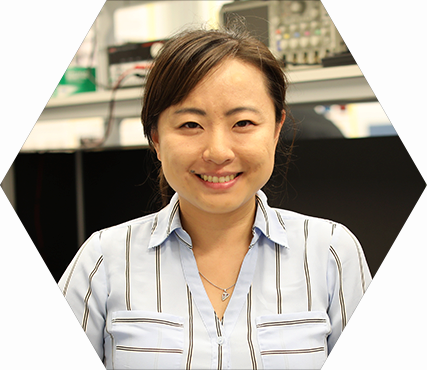Education
- Ph.D., Massachusetts Institute of Technology, 2015
- M.S., Massachusetts Institute of Technology, 2010
- B.S., Massachusetts Institute of Technology, 2008
Teaching Interests
Professor Mazumdar's teaching interests include undergraduate and graduate courses in mechanical engineering fundamentals, with a focus on motion controls and robotics. She emphasizes developing students’ analytical and problem-solving skills through rigorous coursework and hands-on projects. Her instruction also integrates experimental methods to prepare students for research and professional practice in mechanical engineering.
Research Interests
Professor Mazumdar leads the Sensing Technologies Lab, which focuses on the development of new diagnostic techniques and sensor systems for the study of complex physical phenomena. Her lab applies these methods to the study of combustion systems, aeroengines, multiphase flows, energetic materials, hypersonic environments. Her work with electromagnetic sensors and actuators has broad applications in mechatronics, robotics, batteries, and manufacturing systems.
Recent Publications
- S. Mettes, C. T. Howard, J. Roper, T. M. Shapero, K. W. Allen, and Y. C. Mazumdar, “Multilayer 3D-printed Doubly-curved Frequency Selective Surface for L-Ka-Band Filtering,” IEEE Transactions on Microwave Theory and Techniques, vol. 73 (9), pp. 5864-5875, 2025. [http://doi.org/10.1109/TMTT.2025.3577467]
- N. Kohls and Y. C. Mazumdar, “Soft Electromagnetic Actuator and Oscillator,” Advanced Materials Technologies, vol. 10 (6), p. 2400982, 2025. [https://doi.org/10.1002/admt.202400982] [Journal Cover for June 2025]
- J. A. Johnson, A. W. Marsh, E. J. Douglas , B. Ochs, S. Hammack, S. Menon, and Y. C. Mazumdar, “Digital Holography for the Study of Non-aerated Liquid Jets in Supersonic Crossflows,” Proceedings of the Combustion Institute, vol. 40 (1-4), p. 105471, 2024. [https://doi.org/10.1016/j.proci.2024.105471] [Also presented at the International Combustion Symposium]
- G. T. Wang, Y. Peng, W. Sun, and Y. C. Mazumdar “Multi-color Phase-correlation Interferometer for Shock Wave Refractive Index Measurements,” Optics Letters, vol. 49 (12), pp. 3480-3483, 2024. [https://doi.org/10.1364/OL.525836]
- R. McGrath, J. C. Juergensmeyer, R. Bond, E. Bugay, S. Wehe, D. Wu, A. Steinberg, W. Sun, and Y. C. Mazumdar, “Planar Laser-Induced Incandescence for the Study of Soot Production in a Multi-Sector RQL Jet A Combustor,” Applications in Energy and Combustion Science, vol. 18C, p. 100269, 2024. [https://doi.org/10.1016/j.jaecs.2024.100269]

